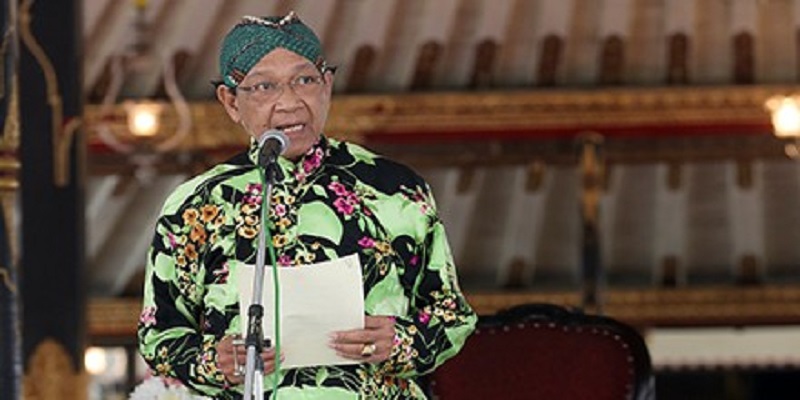KITLV/Royal Netherlands Institute of Southeast Asian and Caribbean Studies

- This event has passed.
Land and adat: A double seminar on customary rights in Indonesia
07/12/2023 @ 15:30 - 17:00

Almost 25 years ago the Aliansi Masyarakat Adat Nusantara (AMAN) was founded in Jakarta. The establishment of AMAN generated hope that in democratizing Indonesia, adat – a term referring both to customary rights and traditions – would be better respected, thereby giving Indonesian citizens more control over their natural resources.
In this forum discussion we will take stock of the role of adat in strengthening citizen rights and engagement in Indonesia, with two presentations highlighting the various roles adat plays in Indonesian politics and society. Bayu Dardias (UGM Yogyakarta) will discuss how aristocratic elites are using adat to expand their control over land. and Yando Zakaria (Circle for Rural and Agrarian Reform) will build on his long experience as a land rights activist to explore the ways in which adat can serve to overcome Indonesia’s persistent land conflicts. The discussion will chaired by David Kloos (KITLV).
Indigenous peoples’ movements in Indonesia: Entengled between class struggle and indigeneity
Yando Zakaria (Circle for Rural and Agrarian Reform)
The mobilisation of customary discourse in the years before the New Order regime collapsed and in the years afterwards has given rise to two faces of adat in the pursuit of justice: the gloomy and the hopeful. This presentation discusses both these positive and negative assessments of the impact of adat, and discusses key trends, such as the shift in the discourse from customary law communities (adatrechtgemeenschappen) to indigenous peoples, the loss of the class perspective in building the movement of the oppressed people and growing transnational activism. Zakaria will propose the usage of the tern customary society as an approach to better regulate the constitutional rights of customary law communities. With arrangements that are compatible with the existing social structure of Indonesia’s pluralistic society, it is hoped that adat will no longer be the cause of prolonged ethnic conflict, legitimisation of social inequality, denial of individual rights, and a weak commitment to citizenship and democracy.
Defending the Sultan’s Land: Yogyakarta, Aristocratic Power and Control over Land in Post-Autocratic Indonesia
Bayu Dardias (UGM Yogyakarta)
In this talk I will discuss the revival of aristocratic politics in post-authoritarian Indonesia. It attempts to explore why some aristocrats have staged successful political comebacks in post-Suharto politics, while others have failed to do so. Using the case of the Yogyakarta sultanate as my main case study, I argue that those aristocrats who have been most successful in post-Suharto politics are those who – over time – developed and maintained their capacity to control land as an essential power resource. After investigating in detail how the Yogyakarta sultanate gained and defended its land – and thus its role in politics – I turn to four other examples in which aristocratic houses struggled to sustain control over land, and therefore experienced varying degrees of power erosion. These examples are Ubud, Ternate, Gowa and Palembang. The seminar will conclude with reflections on the role of aristocracy and land as arenas of power in post-authoritarian Indonesia.
Speakers
Bayu Dardias Kurniadi is an assistant professor and the head of the Government and Politics Master Program at the Department of Politics and Government, Faculty of Social and Political Science, Gadjah Mada University, Yogyakarta Indonesia. Bayu’s interest is in the Indonesian monarchy. He is a member of Modern Monarchy in Global Perspective Network and recently contributed a book chapter in ‘Monarchy and Decolonisation in Asia’ published by Manchester University Press (2020).
Yando Zakaria is an independent researcher affiliated with the Circle for Rural and Agrarian Reform, Indonesia. Since graduating from the Department of Anthropology Faculty of Social and Political Sciences, University of Indonesia in 1988, Zakaria has worked in several research institutions and consultancy, both National or International projheects. He has written over 150 articles published in the mass media, scientific journals, or papers on customary land rights in Indonesia. In 2013 he was a member of Expert Committee for Village Bill Law, advising the House of Representatives of the Republic of Indonesia.
Moderator
David Kloos is a senior researcher at KITLV. He is interested in religion, gender, violence, colonialism, knowledge formation, visual methods, and the social and political aspects of climate change.
Format, date, time & venue
This seminar is a hybrid event and will be held in the conference room of KITLV (room 1.68) and online via Zoom, on Thursday 7 December from 15.30 – 17.00 PM (CET).
Registration
If you want to join this seminar on location, please register via: [email protected].
If you wish to join this webinar online, please register here.
Image
Sultan Hamengkubuwono X of Yogyakarta. Photographer: Bayu Dardias Kurniadi.
Details
- Date:
- 07/12/2023
- Time:
-
15:30 - 17:00
- Event Category:
- KITLV Events
Organizer
- KITLV
- kitlv@kitlv.nl
Venue
- KITLV, room 1.68 & via Zoom



